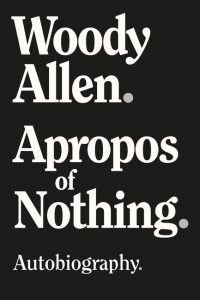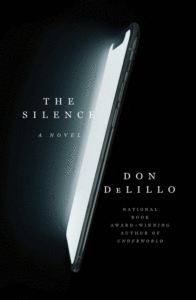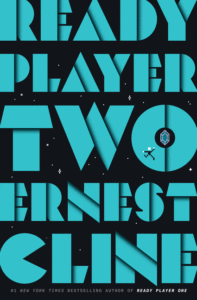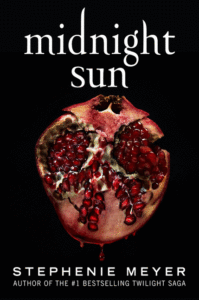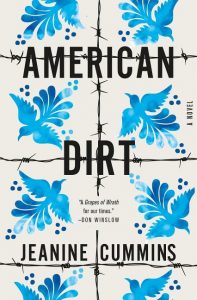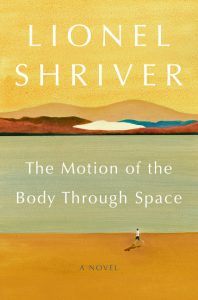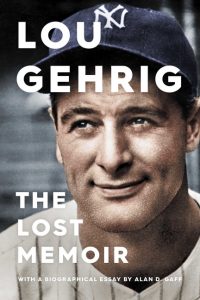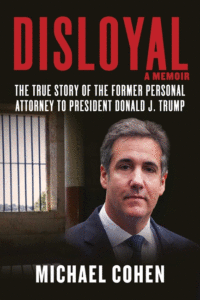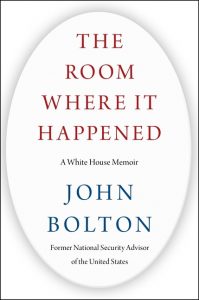
The Most Scathing Book Reviews of 2020
"There are no pleasures to be had here, only a reminder of things that once produced pleasure."
In a year this bruising, this unrelentingly grim, do we really need a list of vicious pans? Doesn’t this exercise in festive schadenfreude, now in its forth year, demean us all? Can’t we just let Woody Allen, Michael Cohen, and Lionel Shriver enjoy the holiday season in peace?
The answers to those very reasonable questions are as follows: yes, no, and no.
We are permitted only one (1) day of abject villainy a year here at Book Marks—a normally kindhearted institution dedicated to helping readers find the books they’ll love by spotlighting the best in contemporary literary criticism—and, by God, we have no intention of wasting it.
Among the tarred and feathered tomes this year: Woody Allen’s exercise in toxic self-exoneration, Ernest Cline’s pop-culture shopping list, and John Bolton’s doorstopper of fatuous braggadocio. (Sadly, Sean Penn did not publish a new Bob Honey novel in 2020 so he will not making his third appearance in a row on this ignoble list. Maybe next year, Sean.)
Here they are, then, for your reading pleasure: 2020’s dirty dozen of diatribes.
Please imbibe responsibly.
*
“Many readers will be grateful that Woody Allen’s memoir has arrived in a time of face masks and latex gloves. So toxic is the volume that some may be tempted to rinse it in chloroxylenol before placing on a lectern 2m distant … so much of the book is harmless … Was there nobody around to tell 21st-century Woody it’s no longer all right to introduce every female acquaintance with an assessment of her physical charms?…It’s as if he’s writing from the judging panel of a Miss World competition during the Nixon administration… The more general lauding of collaborators has, at least, the virtue of being unintentionally hilarious. Every actor is wonderful. Every technician is a genius … The sense of sub-journalistic carelessness is heightened by a series of weird repetitions … The big questions are knocked back with glib quips. His outrage at the abuse accusations drowns out all other objections … Still, the stuff about his jazz band is nice.”
–Donald Clarke on Woody Allen’s Apropos of Nothing (The Irish Times)
“DeLillo’s The Silence is downright skinny, only 116 pages, with typeface and margins a middle-schooler might use to pad his term paper … The Silence digresses, and I mean this quite literally, into a series of overlapping, stream-of-consciousness monologues … What makes The Silence such a letdown is that if the future is coming for us—and it is—it’s DeLillo who I most expected to nail the tenor of how that feels … DeLillo is so obsessed with what his characters might theorize about the disconnecting world that he forgets they might feel some things, too. They’re malfunctioning holograms, sputtering their lines, supposed avatars from the future who fail to pass themselves off as human.”
–Hillary Kelly on Don DeLillo’s The Silence (Vulture)
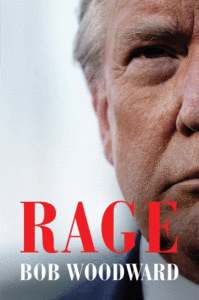
“Woodward’s writing has the mouthfeel of gravel. In Rage, he serves up heaps of that inimitable Woodward prose … He doesn’t do depth. People shuffle in and out of the Oval Office and other rooms of great importance bearing little more than fourth-rate Homeric epithets … A lack of anything remotely resembling literary ability has long been excused on the grounds that Woodward is a first-rate reporter, and first-rate reporters cannot afford the luxury of craftsmanship. The reliance on cliché is a necessity. But nobody wins when we go easy on the Bob Woodwards of this world. Lazy writing is lazy thinking, and lazy thinking is what got us into this whole mess. The greatest achievement of Rage is that its deadening incoherence is a pretty close approximation of what it has felt like to be in Washington in 2020. To be perfectly clear, he has no feel for the city itself, or for anyone who doesn’t have a West Wing pass … The senseless drumbeat of news—that Woodward does gets right, page after page … If anything, the chaos should have pushed Woodward to condense, clarify, forge a cohesive story … Need it even be said that the challenge in interviewing Trump is not getting him to talk, but gleaning anything meaningful from the conversation? Credit goes to whoever on Woodward’s ‘team’ figured out how to season a series of nothing-burgers into what looks and smells like filet mignon … Woodward is an access journalist … Such a lack of moral curiosity is especially troubling in our debased times, when the cover of neutrality is daily abused by partisans and charlatans. Only it should not be surprising, for it has marked Woodward’s approach for ages … Rage…is a testament to what Woodward thinks of himself.”
–Alexander Nazaryan on Bob Woodward’s Rage (The Los Angeles Times)
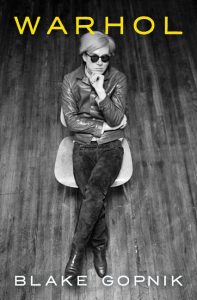
“The extreme tension in Warhol’s work between meaning and non-meaning has to do with random gestures, accidents, and visual noise carrying as much weight as design. Likewise, a lot that happened in Warhol’s life just sort of happened, the way lots of things happen in every life. This obvious fact, and much else that would occur to most sentient beings, has entirely eluded Blake Gopnik, whose elephantine, ill-written, nearly insensible Warhol has now been unleashed, weighing in at nine hundred pages, any of which suggests nothing so much as an incredibly prolonged, masturbatory trance of graphomania … None of this effort has produced anything resembling a fresh idea. Information that has been available for decades is rolled out as startling news, embedded in a dense lard of fatuous pedantry and vapid generalizations. Gopnik’s writing generally reads like boilerplate cribbed from bygone reviews and magazine articles, recast in a squirmy, sophomoric prose that deadens everything it touches… Gopnik’s ideal reader is someone who has never read a word about Warhol or contemporary art, seen a movie, or formed two consecutive thoughts without assistance … Warhol would shrink to about twenty pages if he simply stated what happened and left it at that … This book could appear only at a time when the bohemian mobility, sexual freedom, and cultural ferment of New York in the Sixties, Seventies, and early Eighties are not simply being forgotten, as people who were there die off, but becoming unimaginable.”
–Gary Indiana on Blake Gopnik’s Warhol (Harper’s)
“If there is anything relevant to praise about Ready Player Two, it is how Cline inadvertently nails the inner monologue of entitled, out-of-touch tech moguls, particularly their limited understanding of how human beings actually work, their belief that deep, systematic problems have simple technological solutions, and their conviction that despite all evidence to the contrary, they are a still a hero whose haters would stop them from changing the world for the better. The book’s ostensibly happy ending feels more like a grim twist in a rejected Black Mirror episode where the characters force their faces into strained, rictus grins while eerie strings play over the credits … It feels almost redundant to say that the rest of the plot feels like a Wikipedia list of ’80s media loosely assembled into a story; that is the point of Ernest Cline’s books … There are no pleasures to be had here, only a reminder of things that once produced pleasure… Nothing about what Ready Player Two serves up is satisfying, in the same way that reading a shopping list isn’t as satisfying as eating a meal. You will never eat the meal. There is no meal. As with its predecessor, Ready Player Two will simply come to your table, tell you the names of delicious dishes cooked by other chefs, recite the ingredients they used, and then shake your hand and thank you for coming. This time, you will leave even hungrier, emptier, and poorer for the experience.”
–Laura Hudson on Ernest Cline’s Ready Player Two (Slate)
“It has all the same clunky, leaden sentences you remember from the first time Twilight came out in 2005, and the same bizarre pacing, where nothing really happens until maybe 50 pages from the ending. It has the same insistence that stalking and emotional abuse is romantic, the same casual racism toward Indigenous people, and every other fault that made the franchise a general pop culture punching bag when it was at the height of its cultural saturation 10 years ago … something in this franchise spoke deeply to the hearts of thousands of girls. That something is valuable, and worth a closer look. I can only find traces of it in Midnight Sun… Meyer’s boredom is palpable. She has absolutely no interest in writing about a vampire-on-vampire game of cat-and-mouse through the wilderness … we already saw…Bella’s point of view. And it was sexier and more interesting there. There’s a reason that the first time Stephenie Meyer told this story, she chose to tell it through Bella’s eyes and not Edward’s. Once you get inside Edward’s head, you’re stuck with a serious case of diminishing returns.”
–Constance Grady on Stephanie Meyer’s Midnight Sun (Vox)
“There are so many instances and varieties of awkward syntax I developed a taxonomy … the writing grows so lumpy and strange it sounds like nonsense poetry. I found myself flinching as I read, not from the perils the characters face, but from the mauling the English language receives … Cummins has put in the research, as she describes in her afterword, and the scenes on La Bestia are vividly conjured. Still, the book feels conspicuously like the work of an outsider. The writer has a strange, excited fascination in commenting on gradients of brown skin … The real failures of the book, however, have little to do with the writer’s identity and everything to do with her abilities as a novelist… What thin creations these characters are—and how distorted they are by the stilted prose and characterizations. The heroes grow only more heroic, the villains more villainous. The children sound like tiny prophets … The tortured sentences aside, American Dirt is enviably easy to read. It is determinedly apolitical. The deep roots of these forced migrations are never interrogated; the American reader can read without fear of uncomfortable self-reproach. It asks only for us to accept that ‘these people are people,’ while giving us the saintly to root for and the barbarous to deplore—and then congratulating us for caring.”
–Parul Sehgal on Jeaninne Cummins’s American Dirt (The New York Times)

“The sex scenes are both startling and pedestrian, frank and prim. They’re titillating, like celebrity gossip, and excruciating, like walking in on your parents … The narration is so stilted, so dorky, it inspires fondness … [a] subplot, pitting white feminism against racial justice, feels dutiful, an acknowledgment that no political career could be stainless … characterization feels undermotivated, bloodless—as if anyone would believe that such aspirations are something a person can fall into accidentally, or by some providence, rather than by her own design. This idea of political striving, parked at the intersection of Tracy Flick and Leslie Knope, is possibly endearing and conspicuously small-bore. It refuses to admit anything that might be termed ideology. But perhaps that’s to be expected. More peculiarly, Rodham lacks drama. In the age of the #Girlboss, when appetite and excess are lauded as feminist ends in themselves, is it possible to make women’s ambition seem not just benign but even inert? … With deft economy, Sittenfeld demonstrates how easy it is to get stuck in even the dumbest traps … But blown up to the scale of professional politics, her fine-grained observations lose resolution. In Rodham, the characters walk around radiating divine simplicity … Bland, faultless equanimity constitutes the book’s dominant tone … The…revisionism just ends up insulting everybody’s intelligence.”
–Sophia Nguyen on Curtis Sittenfeld’s Rodham (The Nation)
“… a would-be-funny novel were it not so obviously constructed as a platform for Shriver’s ideological positions. All of Shriver’s gripes with the world, about wokeness and political correctness and affirmative action, are in there—tedious long bits relished by the writer but not the reader. In using her characters and circumstances as a launchpad for her invective, Shriver seems to have forgotten a basic rule of fiction writing: the author’s allegiance is to the reader rather than to the authorial self … Behind the faux-bravado, the feckless provocateur, I would bet, is a very frightened woman, scared of losing her money, her entitlement, and her relevance, a Shriver becoming merely shriveled, unable to deliver the authenticity she claims to craves in others… As many fans of the Shriver oeuvre like to reminisce, a New York Times review of The Mandibles called her the Cassandra of American Letters. A more apt, more relevant characterization of Lionel Shriver as she exists today would be the Karen of American Letters, a disgruntled literary scold who uses her privilege against others who are seen as threats. She brings the I would like to speak with the manager attitude to the publishing world. Her voice cries out for a return to the days when whiteness was great, its dominance unquestioned.”
–Rafia Zakaria on Lionel Shriver’s The Motion of the Body Through Space (The Baffler)
“The ‘lost memoir’ of Lou Gehrig is like a bowl of lukewarm oatmeal. It can fortify innocent youths, and it might soothe cranky dyspeptics. But it is bland mush… Some of the worst baseball writing over the past century and a half has trafficked in such sentimentality, casting athletes as exemplars of character. Gehrig’s account is full of such goop … In Gehrig’s defense, he was not writing for posterity … Gaff’s discovery offers a glance at Gehrig as he burst into the American consciousness at the height of the Roaring Twenties … But the memoir offers little insight into Gehrig … Gehrig’s ghostwritten account stays at the surface, coating the sport in myth … In his introduction and biographical essay, Gaff fails to probe how and why ghostwriting journalists crafted these popular columns. Instead he offers unsubstantiated reassurances about the authenticity of Gehrig’s tale … That naive slushiness belongs in the 1920s, not the 2020s.”
–Aram Goudsouzian on Lou Gherig’s The Lost Memoir (The Washington Post)
“[A] revolting, contradictory, redundant and transparently faux-penitent memoir… While he does proffer the eye-popping details and anecdotes required in any Trump tell-all, Cohen reveals little about Trump that is not already widely understood. Disloyal is an exercise in affirmation, not revelation … Cohen revels in how much they share in common, and still channels The Art of the Deal… The book is getting attention for its criticisms of the president. But Disloyal doubles as Cohen’s unwitting homage to the ways of Donald Trump … The whole thing is written as a lament—but it’s really a lament that it’s over, a lament that he got caught.”
–Carlos Lozada on Michael Cohen’s Disloyal (The Washington Post)
“… almost five hundred pages of bumptious recitation, fatuous braggadocio, and lame attempts at wit… It’s hard to be cool when you’re John Bolton, and evidently almost as hard not to be outright offensive. This emerges in his painfully maladroit efforts to lend color to a turgid narrative preoccupied with self-flattery and score-settling … Bolton also has an unfortunate penchant for defensive self-justification … Even more trying are his sour, stilted witticisms, some of which he feels compelled to point out are supposed to be funny … He’s (a little) funnier when he caricatures himself by casually playing the curmudgeon … If Bolton has shown a dash of rectitude, he has also revealed a surfeit of blinding egomania.”
–Jonathan Stevenson on John Bolton’s The Room Where It Happened (The New York Review of Books)
*
Craving more bilious book reviews?
Reacquaint yourself with The Most Scathing Book Reviews of 2017 , 2018, and 2019
Book Marks
Visit Book Marks, Lit Hub's home for book reviews, at https://bookmarks.reviews/ or on social media at @bookmarksreads.










